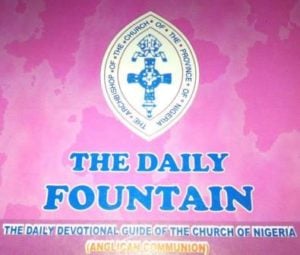Liturgical Readings for : Friday, 16th February, 2024
Lent – Friday after Ash Wednesday
Day of Prayer for Victims of Sexual Abuse
(There is a prayer available below the English language readings and reflection).
Christian fasting began as a support to prayer, as penance for sin, as a way of saving something for the poor, as a way of preparing for the celebration of Easter.
FIRST READING
A reading from the prophet Isaiah 58: 1-9
Is not this the sort of fast that pleases me?
Thus says the Lord:
Shout for all you are worth, raise your voice like a trumpet.
Proclaim their faults to my people, their sins to the House of Jacob.
They seek me day after day, they long to know my ways,
like a nation that wants to act with integrity and not ignore the law of its God.

They ask me for laws that are just, they long for God to draw near:
‘Why should we fast if you never see it, why do penance if you never notice?’
Look, you do business on your fast days, you oppress all your workmen;
look, you quarrel and squabble when you fast and strike the poor man with your fist.
Fasting like yours today will never make your voice heard on high.
Is that the sort of fast that pleases me, a truly penitential day for men?
Hanging your head like a reed, lying down on sackcloth and ashes?
Is that what you call fasting, a day acceptable to the Lord?
Is not this the sort of fast that pleases me – it is the Lord who speaks –
to break unjust fetters and undo the thongs of the yoke,
to let the oppressed go free, and break every yoke,
to share your bread with the hungry, and shelter the homeless poor,
to clothe the man you see to be naked and not turn from your own kin?
Then will your light shine like the dawn and your wound be quickly healed over.
Your integrity will go before you and the glory of the Lord behind you.
Cry, and the Lord will answer; ~ call, and he will say, ‘I am here’.
The Word of the Lord Thanks be to God
Responsorial Psalm Ps 50
Response A humbled, contrite heart, O God, you will not spurn.
1. Have mercy on me, God, in your kindness. In your compassion blot out my offence.
O wash me more and more from my guilt and cleanse me from my sin. Response
2. My offences truly I know them; my sin is always before me.
Against you, you alone, have I sinned; what is evil in your sight I have done. Response
3. For in sacrifice you take no delight, burnt offering from me you would refuse,
my sacrifice a contrite spirit. A humbled, contrite heart you will not spurn. Response
Gospel Acclamation Ps 129: 5. 7
Glory and praise to you, O Christ
My soul is waiting for the Lord I count on his word,
because with the Lord there is mercy and fullness of redemption.
Glory and praise to you, O Christ!
or Amos 5: 14
Glory and praise to you, O Christ!
Seek good and not evil so that you may live, and that the Lord God of hosts may really be with you.
Glory and praise to you, O Christ!
GOSPEL
A reading from the holy Gospel according to Matthew 9: 14-15 Glory to you, O Lord
When the bridegroom is to be taken away from them, then they will fast.

John’s disciples came to Jesus and said,
‘Why is it that we and the Pharisees fast, but your disciples do not?’
Jesus replied,
‘Surely the bridegroom’s attendants would never think of mourning as long as the bridegroom is still with them?
But the time will come for the bridegroom to be taken away from them, and then they will fast.’
The Gospel of the Lord. Praise to you, Lord Jesus Christ.
***************************
Gospel Reflection Friday after Ash Wednesday Matthew 9:14-15
In the gospel reading, Jesus affirms the value of fasting for the time after his death and resurrection, the time of the church, ‘The time will come for the bridegroom to be taken away from them, and then they will fast’. Only Ash Wednesday and Good Friday remain as days of fast and abstinence, but the whole season of Lent has been traditionally understood as such a time. We deny ourselves something so that we can give ourselves more fully to the way of the Lord.
The saying ‘no’ that fasting involves is always in the service of a greater ‘yes’ to the Lord and his people.
This is what the prophet Isaiah stresses in today’s first reading. He makes a firm connection between fasting and the service of the Lord through the care of the most vulnerable, breaking unjust fetters, letting the oppressed go free, sharing our bread with the hungry, sheltering the homeless poor, clothing the naked.
Jesus declares in the gospels that whatever we do for those in greatest need we do for him, and whatever we do for him we do for God, because he, Jesus, is God-with-us. Within the Christian tradition, Lent, the season of fasting, is also the season when we give ourselves in a special way to those in greatest need. The Trocaire Lenten campaign is one expression of that dimension of Lent. Showing hospitality to the refugees of war, is another expression of the care of the needy that both Isaiah and Jesus stress so strongly. Isaiah declares to the people in that first reading that if they care for the vulnerable, those who are wounded in some way, their own wound will be healed over. We ourselves are healed when we work for the healing of others. As Jesus declares in the gospels, when we give to others, a full measure will be poured into our lap.
____________________________
The Scripture Readings are taken from The Jerusalem Bible, published 1966 by Darton, Longman & Todd Ltd.











